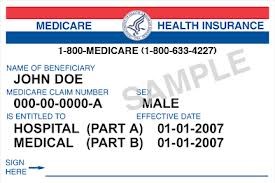 By Kevin Prindiville, Executive Director, Justice in Aging
By Kevin Prindiville, Executive Director, Justice in Aging
Of the 54 million people with Medicare, a staggering 25% have annual incomes below $14,400. For these people living in retirement, or coping with a disability in poverty, Medicare coverage offers a lifeline, a chance to get needed health care. That precious red white and blue Medicare card means that a doctor will see you, a physical therapist will help you recover from a stroke and much more. But that lifeline disappears if you can’t afford to pay your $105 monthly Medicare Part B premium, or your $1260 hospital deductible, or if you have 10 prescriptions that need filling, each with a co-pay of $20 or $30.
Fortunately, the Medicare lifeline does work for many people in poverty, but only because safety net programs work together with Medicare to plug coverage gaps and make the Medicare benefit affordable. The Medicaid program covers Medicare premiums, deductibles and co-payments. Enrollees in full-scope Medicaid receive Medicaid long-term services along with coverage of their Medicare costs; those who qualify only for Medicare Savings Programs – operated by state Medicaid agencies and generally offered to people with incomes slightly higher than full Medicaid cut-offs – get help with their Medicare costs but do not get other Medicaid services. Today fully twenty percent of Medicare beneficiaries rely on Medicaid-funded programs for Medicare premium or cost-sharing assistance. In addition, the Low Income Subsidy, known as “extra help,” provides relief to about 11 million beneficiaries who otherwise could not afford Medicare prescription drug program premiums, deductibles and co-pays. That subsidy also protects low income beneficiaries from falling into the infamous donut hole.
Dual eligibles, people who qualify for both Medicare and Medicaid, need these safety net programs to remain strong and to grow. When states seek instead to narrow Medicaid eligibility standards, they not only are cutting off people from needed Medicaid services, like long-term services and supports, but also are effectively making it impossible for dual eligibles to use their Medicare. Medicare is a benefit that many earned working their whole lives at low-paying difficult jobs. Like other workers, they saw their Medicare contributions deducted from each and every paycheck. We at Justice in Aging are committed to working with the Center for Medicare Advocacy and other advocates to ensure that all Medicare beneficiaries, especially those who most need what Medicare can provide, can afford to use the benefits to which they are entitled.
